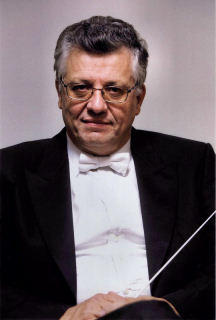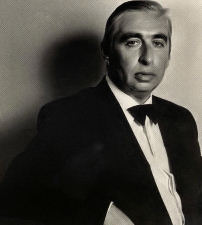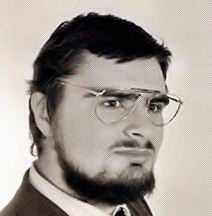|
Editorial Board
Melanie
Eskenazi
Webmaster: Len Mullenger
|
Seen and Heard International Concert Review
Rachmaninov, Rimsky-Korsakov and Shostakovich: Opus Femina Chorus (under Falia Papayannopoulou), Male Chorus of the Commercial Bank of Greece (under Stavros Beris) Soloists: Valery Sagaidachny, piano; Dmitri Stepanovich, bass Athens State Orchestra, conductor: Byron Fidetzis Athens Concert Hall 22.12. 2006 (BM) 
Byron Fidetzis
Byron
Fidetzis, currently director of
Athens State Orchestra, is one of the best things that
has happened to the Greek classical music scene in recent
years. He has single-handedly excavated a great deal of
lovely, hitherto practically unknown works by 19th
century Greek composers, resulting in performances and
recordings which have earned him the nickname “Schliemann”
among some of his admirers. What’s more, he is keen on
introducing his compatriots to more than “merely” the
German and Viennese classics, and made sure that 2006
in Athens was not just mostly Mozart, but rather a year
commemorating Shostakovich and Schumann as well. Last
December, Fidetzis’ holiday gift to his audience was Berlioz’
oratorio L’Enfance du Christ. This year it was
the Babi
Yar
Symphony, one of the great Soviet composer’s last works,
first performed 44 years ago in Moscow, just a few days
before Christmas.
Valery
Sagaidachny One
of these many souls is the Ukrainian pianist who performed
the Rimsky-Korsakov concerto, the composer’s only full-scale
work for the piano, dedicated to the memory of Liszt and
based on the theme of a Russian folk song (hence the connection
to the rousing opening by the two choruses with Rachmaninov’s
“Three Russian Songs” – although the orchestra was perhaps
more stirring than the singers). A consummate artist of
the old Russian school born in Harkovo in 1939, Valery
Sagaidachny arrived in Greece - his father’s native land
- in the wake of Chernobyl and the demise of the USSR,
only to initially be turned away from many a door he knocked
on (does this ring any Christmas bells?) Fortunately for
his audiences, he has since had many an opportunity to
perform, and on this particular evening he was clearly
delighted to be playing ionce more, treating us to a genuinely
ethereal rendition of the concerto’s pianissimo passages
and giving three moving encores.
For
the next and last work on the evening’s program, Fidetzis
had recruited a “true Russian” from Moscow, young Dmitri
Stepanovich, his booming bass eminently suited to the
solo part and capable of enormous subtlety - a luxury
import, no less! He graciously accepted the applause following
his performance by holding up the photograph of Shostakovich
on the front of his score, and he, too, presented his
listeners with a poignant encore, singing in Greek from
the Christian Orthodox liturgy, as if he had sensed their
need for a connection between the symphony and the forthcoming
Nativity celebrations. Fidetzis himself comes across on
stage as a mild-mannered, unpretentious man and an accomplished
conductor who has developed a first-rate rapport with
his musicians, with accurate and engaging playing to show
for it. Not only that, here is an artist who clearly has
his mind set on extending our musical horizons and putting
things into perspective. I for one look forward to whatever
else he may have in store for us!
Back to the Top Back to the Index Page |
| ||
|
||||




